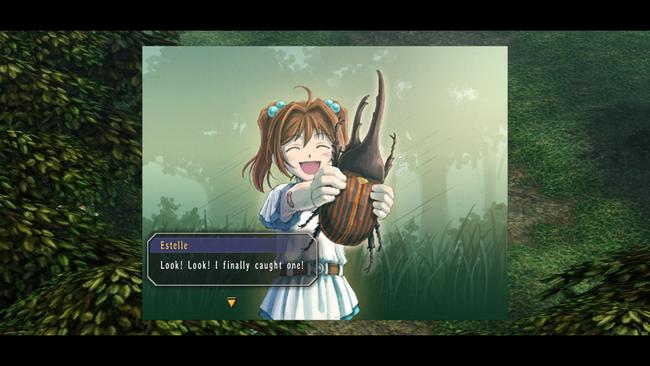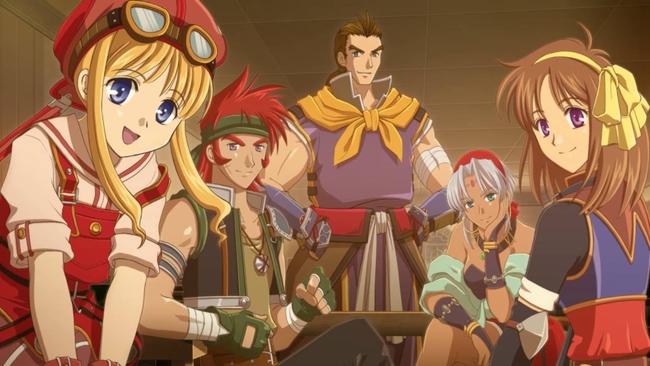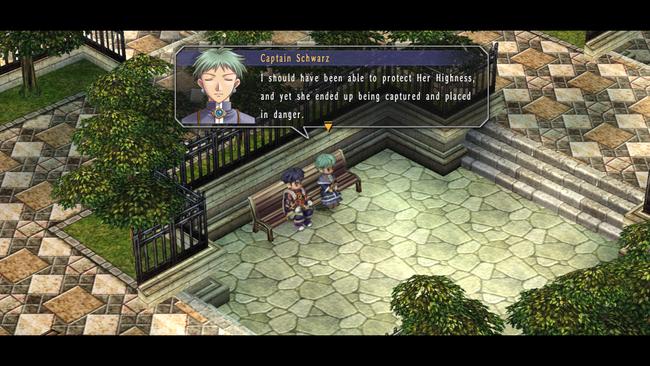
Trails in the Sky the 3rd's unique place among the best RPGs of the year
During this site’s RPG of the Year discussions for 2017, one interesting point of contention was the placement of Trails in the Sky the 3rd. While the title was never really in play for the overall RPG of the Year award, there was a good amount of division about whether it should be placed as a Best of 2017 winner (ie, within the top five), instead of within the runner-up category. Of course, with the strength of games released in 2017, it was always going to be difficult to stand at the top among the great games released, but it was also fortunate in a way that things lined up so such an interesting discussion could be had.
It’s hard to say for certain since this was the first year of RPG Site’s new format for RPG of the Year deliberations – picking a top five instead of using categories – but I think it’s safe to say that had Trails 3rd released in 2016 or in another weaker year, it would have reached the top five without a lot of debate. The way it was however, it stood right on the precipice, and that’s what initially seeded this discussion amongst the site staff.

For starters, Trails in the Sky the 3rd is a really great game. It surprised me how fondly I took to the title after having been relatively unmoved by the first two games in the series: Trails in the Sky and Trails in the Sky SC (hence, FC and SC). But that’s where the question reveals itself, is Trails in the Sky the 3rd a great game in its own right, or does it mainly stand as a stellar closing entry to a trilogy of games? A nuanced but very real distinction.
Making things even more difficult is the fact that not only is Trails 3rd the closing entry to its trilogy, but also a game that bridges that story to Falcom’s larger interlocking series of RPGs, which include the Trails in the Sky trilogy, a pair of games known as the Crossbell arc, and the ongoing Trails of Cold Steel quadrilogy of games. Convoluting the discussion even further is the fact that the English localization of these titles is spotty: the Crossbell games remain unlocalized with only ongoing fan-translation efforts keeping hope alive for western supporters, and the future of Cold Steel titles past II is a large unknown. Needless to say, it’s a bit muddy.
Now, I’m not the most objectively qualified person to voice opinions on the series – I’ve only played the original “Sky” trilogy and Cold Steel. But when Trails 3rd was brought up in the deliberations late last year it was eventually boiled down to a single question: “Would someone that hadn’t played FC and SC have the same response to the strengths of Trails 3rd?” The answer was a nigh unanimous “no”, and that contributed to leaving it out of the top five.
Now that led to a bunch of fascinating conversation among the site staff for a couple days after the list was finalized: Is it fair to penalize a title for having such a large barrier to entry in order to fully enjoy? FC and SC are lengthy RPGs, often considered slow-burns for the most part. Playing both titles in preparation for the trilogy's final entry is asking for 100 hours of investment in games that, in my opinion, are simply not as good as what they lead into.

At the same time, the majority of the strengths of Trails 3rd simply cannot stand on their own without this investment. The collection of vignettes shared within the game’s Door mechanic simply would not work without the characters, environments, and situations within having been introduced over the first two titles. One of the series biggest strengths is character development, and The 3rd places much of its emphasis on a cast of characters that have already had two full games to flesh out their personalities, motives, dreams, and even quirks. The way The 3rd further explores character backstories, futures, and interaction is simply marvelous, but it only works because players have already been through so much with this cast; and reading a bare synopsis is no substitute. The 3rd earns its many emotional moments through that 100+ hours of game time players have already dedicated to the series.
On the other hand, it could be stated to be equally unfair to just assume that the long hundred hour investment needed to fully enjoy Trails 3rd is a baked-in expectation for the title, and then compare it on a level playing field to other games that must establish everything in their sole entry. Not wanting to punish nor handicap Trails 3rd leaves it in a weird spot.

We can only expect this line of discussion to intensify if we see Cold Steel III and beyond make their way over to western shores eventually – especially if the analogous investment for those titles requires several games without official localized releases. It’s a difficult thing to suggest to someone that they should first play a hundred hours across two games to enjoy Trails 3rd, it would be even more difficult to expect someone to have a few hundred hours of investment among 5+ games across two languages to enjoy later titles in the Cold Steel sub-series to their fullest extent.
With all that stated however, I want to state that I am not at all against the idea of lengthy ambitious narratives spanning multiple entries. What Falcom is doing with its series is on a scale beyond what we’ve seen from pretty much any other creative body. The lengthy series incentivizes the player to get immersed into the world that each entry seeks to shed a little bit more light on -- locations, characters, and events that might seem like footnotes or pure flavor in one sub-series might end up being a core component in another.
While some titles stand strongly on their own, such as Trails in the Sky FC and Trails of Cold Steel, all of the titles are mutually elevated when pockets of prior experiences can be carried from one to the next, even if the specific focus shifts. There’s a place for these sorts of games, the degree of prior knowledge carried from title to title allows these games to place themselves in a unique position when it comes to world-building and telling grand stories from multiple perspectives.
It just so happens to also make Game of the Year deliberations just a little more difficult.